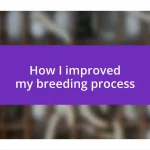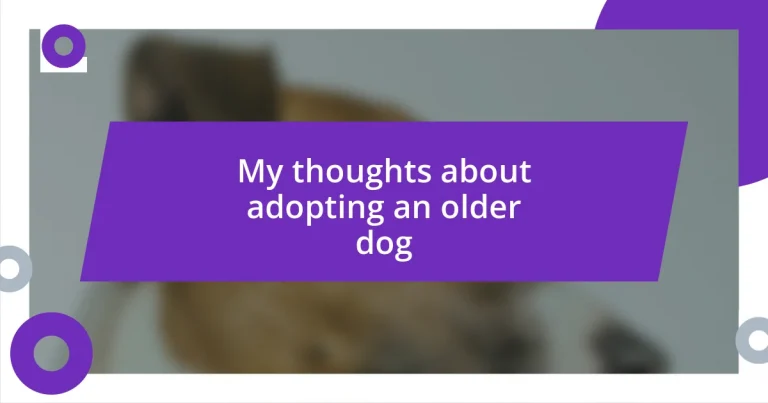Key takeaways:
- Older dogs often have calmer temperaments, are usually trained, and are ready to bond with new families.
- Common misconceptions include beliefs that older dogs are untrainable, too much effort, low-energy, or inherently unhealthy.
- Proper health management for older dogs includes regular vet visits, appropriate nutrition, and pain management for improved quality of life.
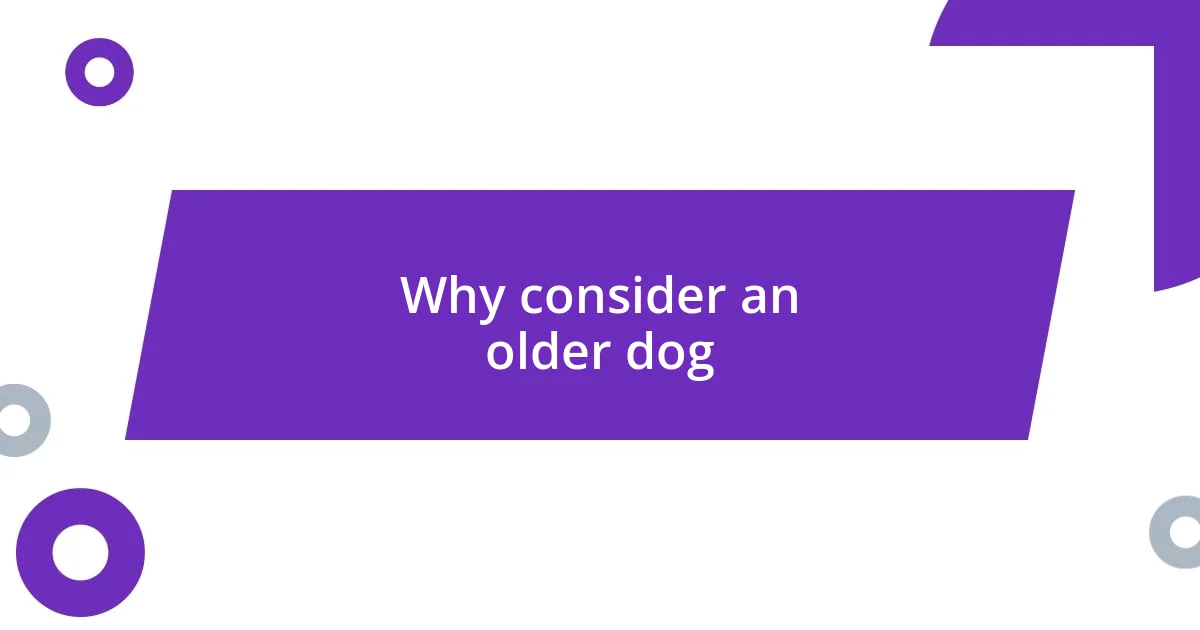
Why consider an older dog
When I first considered bringing a dog into my life, I found myself gravitating towards older dogs. One thing that struck me was their temperament; many older dogs are calmer and more well-rounded compared to their younger counterparts. Have you ever thought about how the excitement of a puppy might actually feel overwhelming for some? In my experience, adopting an older dog often means welcoming a furry friend who is already trained, affectionate, and ready to simply be by your side.
I remember my first encounter with a sweet, senior golden retriever at a rescue event. His gentle demeanor and loving gaze radiated a sense of wisdom that resonated deeply with me. When I think about it, isn’t it heartwarming to think that many older dogs have so much love left to give? They often appreciate a second chance more than we can understand, reminding us of the beauty in second chances—something we can relate to at various stages of life.
Older dogs also tend to adapt well to new environments. When I adopted my lovely, older beagle, I was surprised to find out how quickly she settled into her new home. Have you ever noticed how a dog’s personality unfolds with patience and love? Older dogs may take their time, but often, they flourish in their new surroundings and form incredibly strong bonds with their new families.
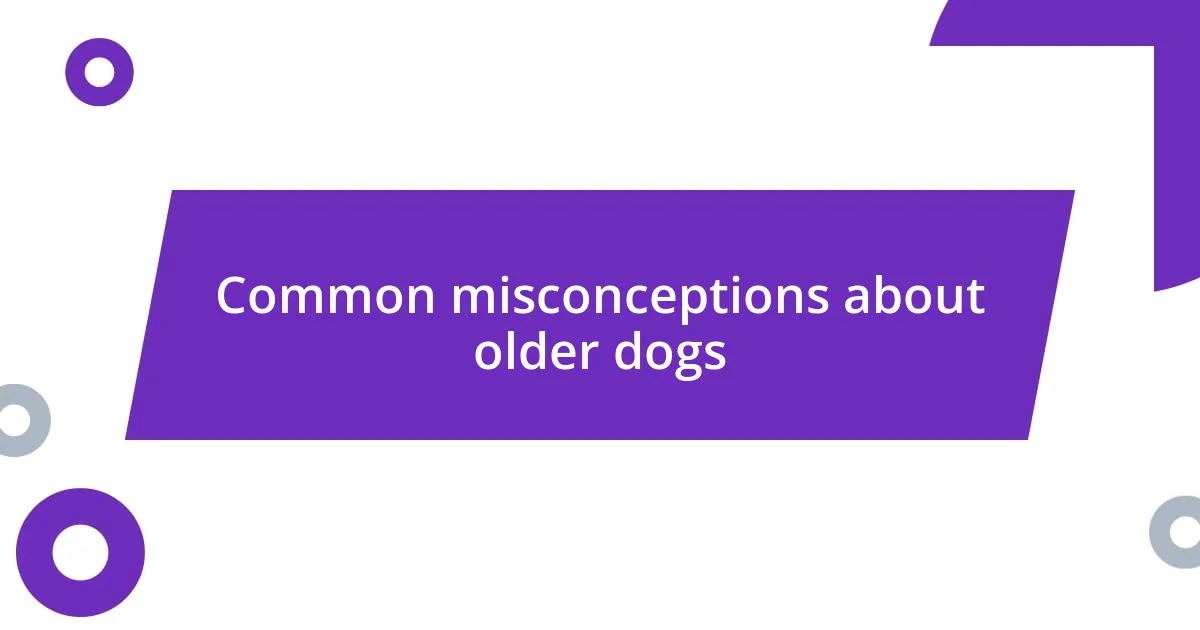
Common misconceptions about older dogs
One common misconception about older dogs is that they are set in their ways or untrainable. I’ve encountered this belief numerous times, and I can’t help but feel it’s a disservice to these wonderful companions. In my experience, older dogs are often more eager to learn than people realize. For instance, when I took in a senior terrier mix, I was amazed at how quickly he adapted to new commands. His previous life experiences made him more receptive to guidance.
Here are some prevalent misunderstandings about older dogs:
- They can’t learn new tricks. In reality, older dogs can be quite adaptable and responsive to training.
- They’re too much effort. Many older dogs are already house-trained and may require less time and energy than a puppy.
- They don’t have much energy. While they may not be as hyper as younger dogs, many older dogs still enjoy playtime and walks.
- They’re all sickly. Just like people, dogs age differently; many older dogs are quite healthy and active.
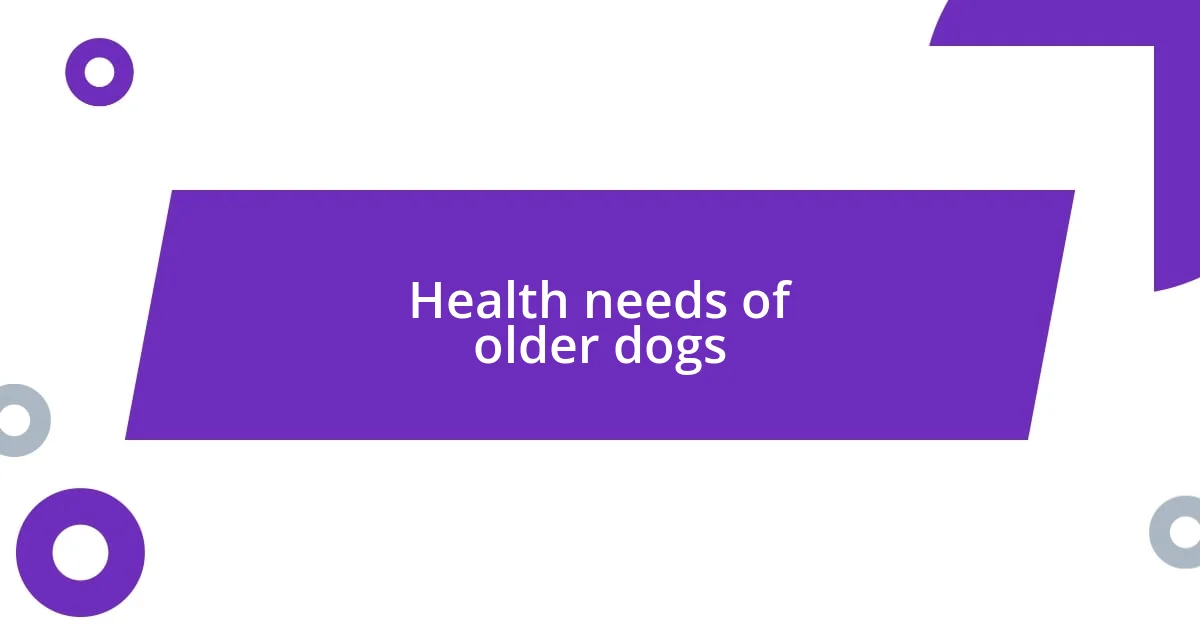
Health needs of older dogs
When it comes to older dogs, their health needs can be quite distinct from those of younger pets. I remember the moment I learned that my elderly beagle needed more frequent vet visits than I initially expected. Regular check-ups became invaluable in monitoring her joints and dental health, ensuring she stays comfortable. Have you ever noticed how a small change in routine can make a big difference in a pet’s well-being?
Nutrition plays a significant role too. When adopting my senior dog, a vet advised me to adjust her diet to support her aging joints. After switching to a high-quality, age-appropriate dog food, I noticed a remarkable boost in her energy levels and overall mood. It’s fascinating how the right nutrition can rejuvenate an older dog’s spirit. I often wonder, isn’t it amazing how something as simple as a meal can impact their happiness?
Pain management is another crucial aspect of an older dog’s health. I vividly recall my own worries when my golden retriever started showing signs of discomfort, especially after playtime. By incorporating joint supplements and discussing pain relief options with the vet, I found a way for him to enjoy his golden years more fully. This experience made me realize just how important it is to advocate for their comfort—after all, who doesn’t want their furry friend to live pain-free?


